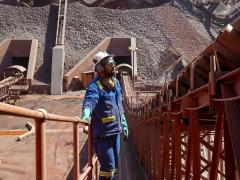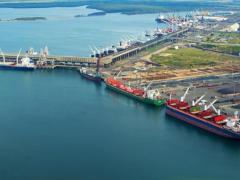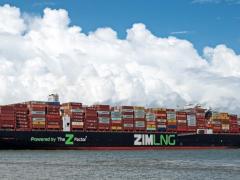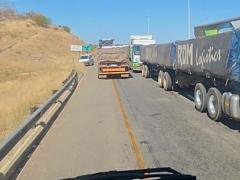Warehousing and distribution operators across southern Africa are under mounting pressure to strengthen risk management as power disruptions, theft, compliance demands and climate-related events increasingly threaten operations. With stockholding and depot activity rising on the back of regional trade and supply chain shifts, insurers are responding with more specialised products tailored to the sector’s evolving exposures. According to Dirushen Pillay, sales director at Land and Sea Risk (LSR), the company has strengthened its cargo-in- storage and warehouse liability solutions, ensuring that goods held in depots or distribution centres are properly covered against theft, damage and fire. “We have also developed more specialist cover for bulk commodities, minerals and agricultural stock, reflecting the unique exposures of the southern African market.” He said the focus was on enhanced risk assessment processes, with emphasis on detailed site audits, client engagement and historical claims analysis. “By collaborating closely with operators, we are able to identify vulnerabilities such as weak points in security, storage practices or fire prevention measures. This practical, hands- on approach allows us to provide fairer pricing while encouraging clients to strengthen their own internal controls,” he told Freight News. Despite these enhanced measures, Pillay said operators were facing new and evolving threats that continued to test warehouse and depot resilience. “We’re seeing a sharp rise in theft-related claims, particularly involving high- value commodities,” he said. “There is also growing demand for business interruption cover, as operators increasingly recognise how a single event – whether a fire, cyber breach or port disruption – can trigger cascading losses across the supply chain.” In addition, several structural and regional challenges continue to pose risks for warehousing and distribution operators across the region. “Ongoing power outages affect cold storage, warehousing operations and distribution schedules, while poorly maintained highways and rural roads increase accident rates, delays and cargo damage. Truck hijackings and depot theft syndicates remain a major threat, particularly on routes between Gauteng, Durban and the mining belts. At the same time, rising claims on high-risk corridors are putting pressure on insurance affordability, leaving many operators with gaps in coverage,” he said. Asked how South Africa compares with international markets, Pillay said that globally, cyber and automation risks dominated the conversation. “In South Africa, while these risks are relevant, crime, infrastructure strain and regulatory unpredictability remain front of mind. The international market is generally more stable, whereas our environment demands resilience and agility in operations and insurance structuring.” Pillay said the company expected a tightening of risk management standards. “Operators who fail to adopt stronger security and compliance measures are likely to face higher premiums. On the positive side, those investing in sustainability and resilience will gain a competitive advantage, both operationally and in their insurance partnerships.” LV
Tailored solutions address evolving exposures
Comments | 0












